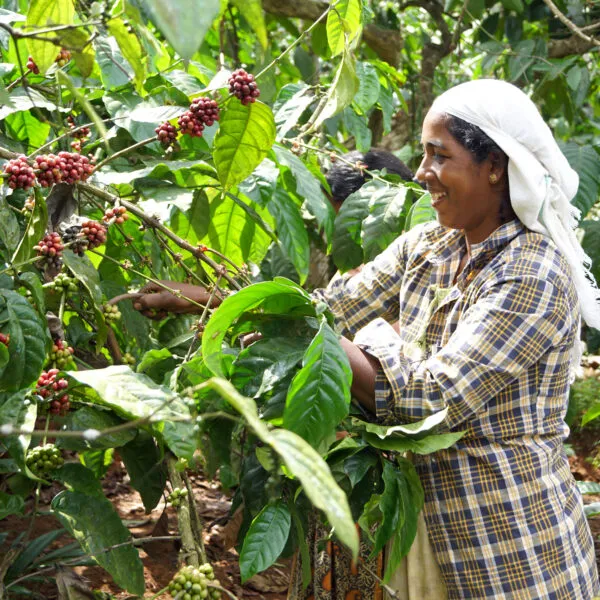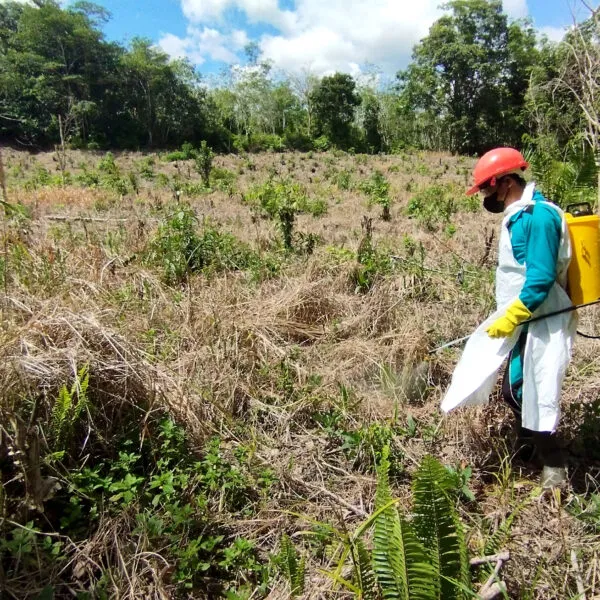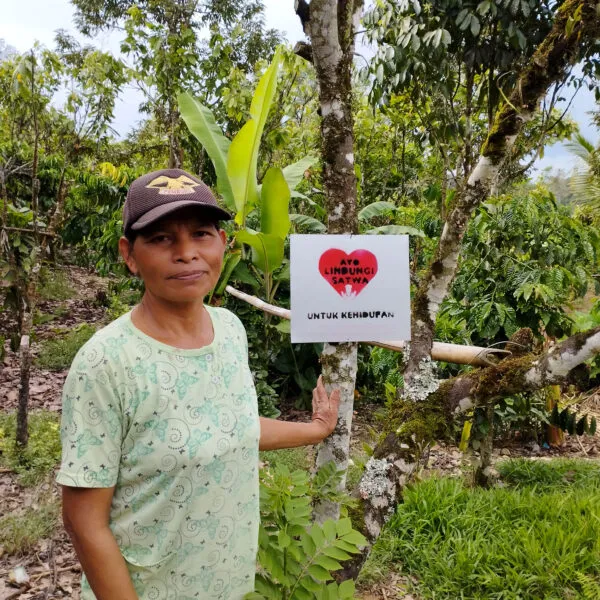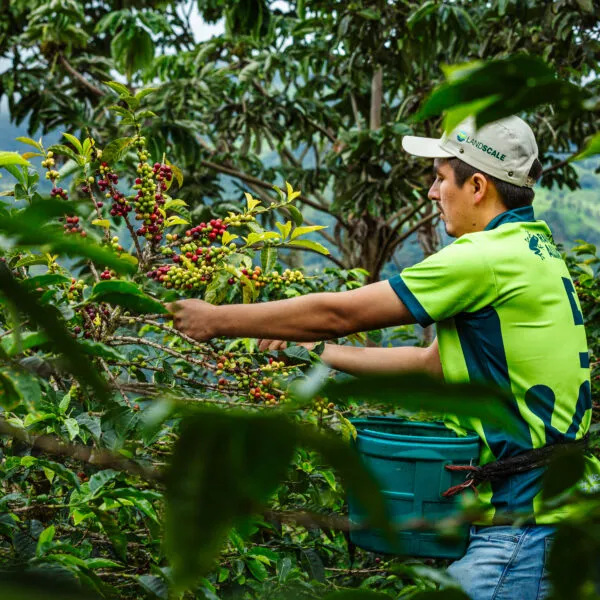High on the list of UN Sustainable Development Goals, experts agree that strengthening the position of women is an essential part of creating a more sustainable future. A key part of leveling the playing field is ensuring rural women’s representation and participation in natural resource management and local economic activities. Globally, women spend more than double the time on unpaid domestic and care work than men. This implies a higher dependency on the collection and use of natural resources that are becoming increasingly scarce, like water and fuelwood. Moreover, women often have less access and control over natural resources like land. In fact, less than 15 percent of women are landowners globally.
This issue is especially important in areas of high environmental value where women can play a critical role in protecting existing forests and biodiversity. With funding from the Estée Lauder Companies, we are scaling up ongoing projects in three such areas across Latin-America, Africa, and Asia-Pacific. These projects are supporting women to lead the way forward in community-based landscape management and restoration, as well as nature-based business opportunities.
Location
Latin-America:
- Peru, San Martín region
Africa:
- Cameroon, Mount Bamboutos region
Asia-Pacific:
- Indonesia, West Java and Central Java provinces
Period
2021-2022
Partner communities
This project benefits 85 women and their households and 44 children and youth across 12 communities (five in Peru, five in Cameroon, and two in Indonesia).
Project objectives: investing in women through targeted training
This project is developing women’s empowerment and gender equality approaches in three diverse contexts:
- Peru: developing the business skills of Kichwa women
In Peru, groups of Indigenous Kichwa women produce bags and purses of native cotton and other natural fibers from the Peruvian Amazon through a collective handicraft company called Warmi Awadora. While this group of women is highly skilled in the production of traditional handicrafts, they lack knowledge in online sales and promotion through social media. This issue was highlighted during the pandemic, as in-person sales through market stalls and tourism halted, causing a sudden drop in their income.
Building on a previous Rainforest Alliance project, these women receive additional leadership, organizational, administrative, and entrepreneurial skills training. They are also supported to establish community shops and develop new product designs and digital tools such as an online catalog, which will allow them to increase their revenue.
- Cameroon: ensuring women’s participation in landscape management
In the key biodiversity area of Mount Bamboutos in West Cameroon, land use conflicts often arise due to population pressure. An existing Rainforest Alliance project is working to establish a community-led landscape management board (LMB) to increase participatory landscape governance and reduce land conflicts. However, if specific measures aren’t put in place to ensure women, youth, and minority groups meaningfully participate, there is a high risk that they will have limited, if any, involvement, and the entire model will suffer as a result.
Through this project, women members of the local LMB receive training and coaching on women’s leadership so that they can effectively drive change within their organizations and businesses. Men in their communities are also sensitized to better understand and foster these changes.
- Indonesia: establishing women as leaders in sustainability
In Indonesia, areas in West Java and Central Java are severely degraded due to practices like illegal logging, slash-and-burn farming, agricultural expansion into forested areas, and washing clothes in rivers with non-degradable detergents. While there are initiatives to reforest and restore these areas, women often face barriers in taking leading roles for natural resource management in their communities.
This project supports women’s engagement in tree-planting activities, as well as women-led community education processes. This is helping elevate and establish women of all ages as leaders in community-led reforestation and sustainability promotion.
Desired impacts: more women as sustainability champions
By the end of this project, women in the project communities will be better able to participate in local landscape governance and their rural economies. This will cascade to their communities through more participatory landscape governance, youth in reforestation, and higher and more stable incomes through sustainable economic activities.
These are the outcomes that we aim to achieve in each country:
- Peru: combining ancestral traditions with modern business skills
The groups of Kichwa women will improve their skills and means to run Warmi Awadora. Through an updated online catalogue and the establishment of five new community shops, they will be able to keep their traditions alive while preserving local natural fibers. This will strengthen the local community through a more stable source of income and encourage the Indigenous women’s pride in their skills.
- Cameroon: more women embracing leadership roles
30 women will gain the skills necessary to represent their communities in the local LMB. They will be supported to take up leadership roles where they will make decisions on preserving and restoring the local landscape while protecting the interests and need of its inhabitants, including ethnic minorities, young people, and other women.
- Indonesia: women as forest guardians
Women and youth across the provinces of West Java and Central Java will gain the skills, inputs, and mindset to promote sustainable forest management. They will be engaged in managing endemic tree nurseries, tree planting, and the geolocation tagging of trees. Next to that, they will learn how to harvest forest products and make natural soap to earn additional income. As a result, women and youth will become sustainable forest management leaders in their communities, improve their status, and contribute to local restoration efforts.
Funders
The Estée Lauder Companies
Implementing partners
Rainforest Alliance contact
Joky Francois, Gender Lead




